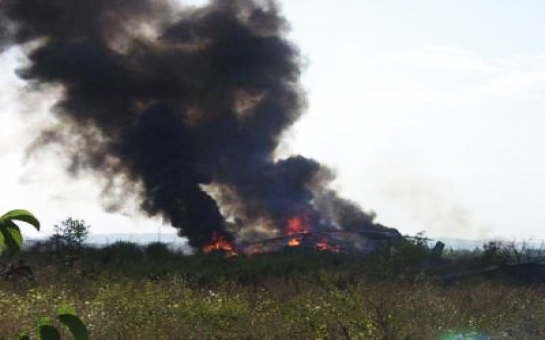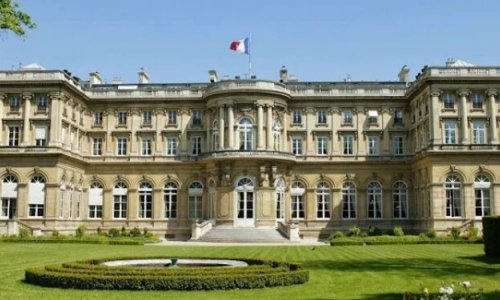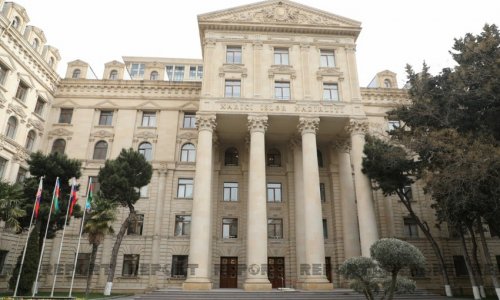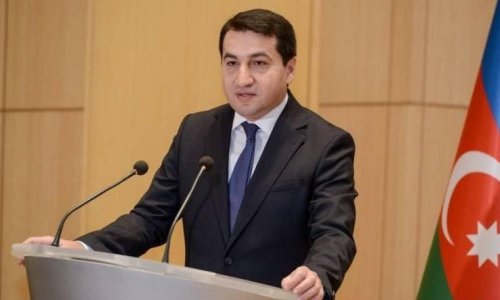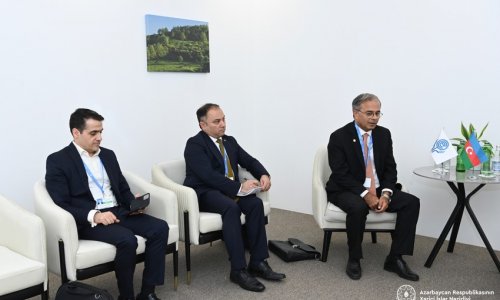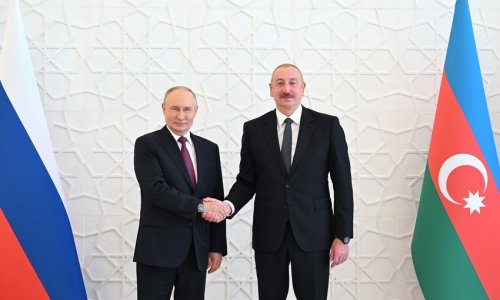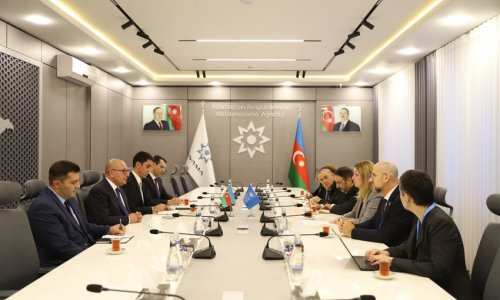(Eurasianet) - In Ukraine, Russia is widely seen as a troublemaker intent on destabilizing the government in Kyiv. But when it comes to Nagorno-Karabakh, the longest current conflict in the Caucasus, the Kremlin is expected to act as a force for restraint.
In the wake of a helicopter shoot-down incident on November 12, the Karabakh conflict finds itself at a crossroads, in which the potential for a return to full-scale warfare seems higher than at any point since the signing of a 1994 ceasefire. Azerbaijani forces downed the Armenian helicopter near the ceasefire line of contact, where both countries’ armed forces remain on high alert, and where gunfire exchanges regularly occur.
A widely held belief among Azerbaijani policymakers and political analysts is that Russia will be an important, perhaps even decisive, factor in what happens next. They note that Moscow is Armenia’s chief strategic ally and economic patron.
Elkhan Shahinoglu, head of Baku’s Atlas Research Center, is among those who think the Kremlin will exert a moderating influence on the Armenian government.
“Perhaps Armenia will want to respond to this incident. However, the final decision will be up to Moscow, as always,” Shahinoglu predicted.
With the Kremlin embroiled in the Ukrainian conflict, and with Western sanctions taking a steep toll on the Russian economy, it is likely President Vladimir Putin wants relative calm in the Caucasus, experts in Baku believe. “Considering the challenges Moscow is facing in Ukraine and tensions with the West, I do not expect Moscow will want to open a new front here, too,” Shahinoglu said.
Arastun Orujlu, director of the East-West Research Center, said Russia’s geopolitical interest in the Caucasus is the maintenance of the status quo, i.e. a “frozen conflict” in which neither side had the upper hand in Karabakh. “Russia sees frozen conflicts as the main support for its existence in the region,” Orujlu said.
Azerbaijani officials remain defiant and unapologetic over the shoot-down, in which the three-man Armenian air crew died. Casting the incident as an act of self-defense, the Azerbaijani high command awarded a medal to the officer who ordered the attack. Baku maintains the helicopter was probing Azerbaijani defenses along the frontline, while Armenian officials insist it was on a routine training mission.
“Azerbaijan only wanted to let Armenia know that they should respect our borders,” commented Uzeyir Jafarov, a military affairs journalist. Jafarov pointed out that two Armenian helicopters were probing the frontline on November 12, and that if Azerbaijani forces were intent on provoking the revival of a full-scale conflict, they would have downed the second helicopter.
Some experts suggested the incident is connected to a desire by some officials in Baku to test Moscow’s mood. Azerbaijan and Russia have long had a prickly relationship: not only has Moscow’s special relationship with Yerevan been a source of tension in Baku, but Russia and Azerbaijan have also wrangled over energy export-related issues, including competing pipeline routes.
The Euromaidan upheaval in Ukraine, however, has brought Russia and Azerbaijan closer together. Seeking to keep the Euromaidan spirit from seeping into their own countries, both Moscow and Baku have carried out far-reaching crackdowns on all forms of free expression this year. And these days, international observers see Putin’s administration as philosophically simpatico with President Ilham Aliyev’s government in Baku.
Orujlu is among those who wonder whether the shoot-down was Baku’s way of gauging Moscow’s true feelings toward Baku. “It might be a little intelligence operation by Azerbaijan, seeking to find out the reaction of Russia [to such actions], given that Moscow has challenges in Ukraine and a closer relationship [now] with Azerbaijan,” Orujlu said.
Ultimately, no matter what happens in Moscow, Azerbaijan is ready for any contingency, said Shahinoglu. “If Armenia decides to respond, Azerbaijan will not step back and it will lead to a new war,” Shahinoglu said.

